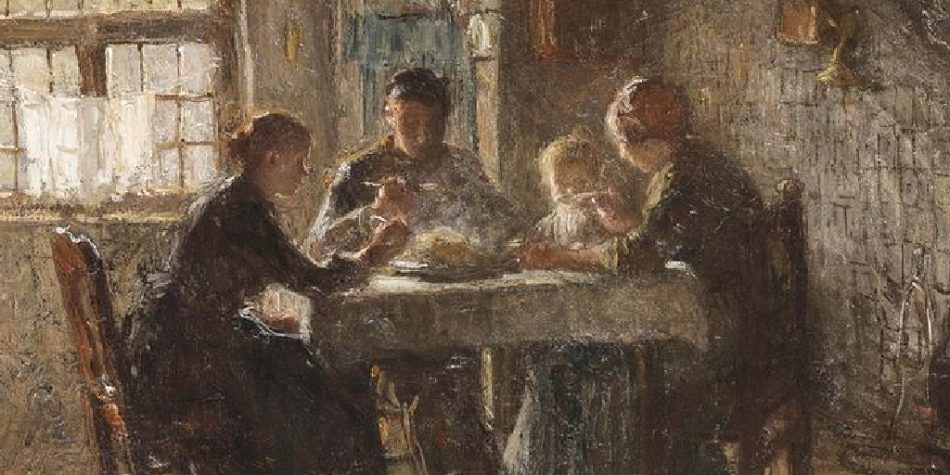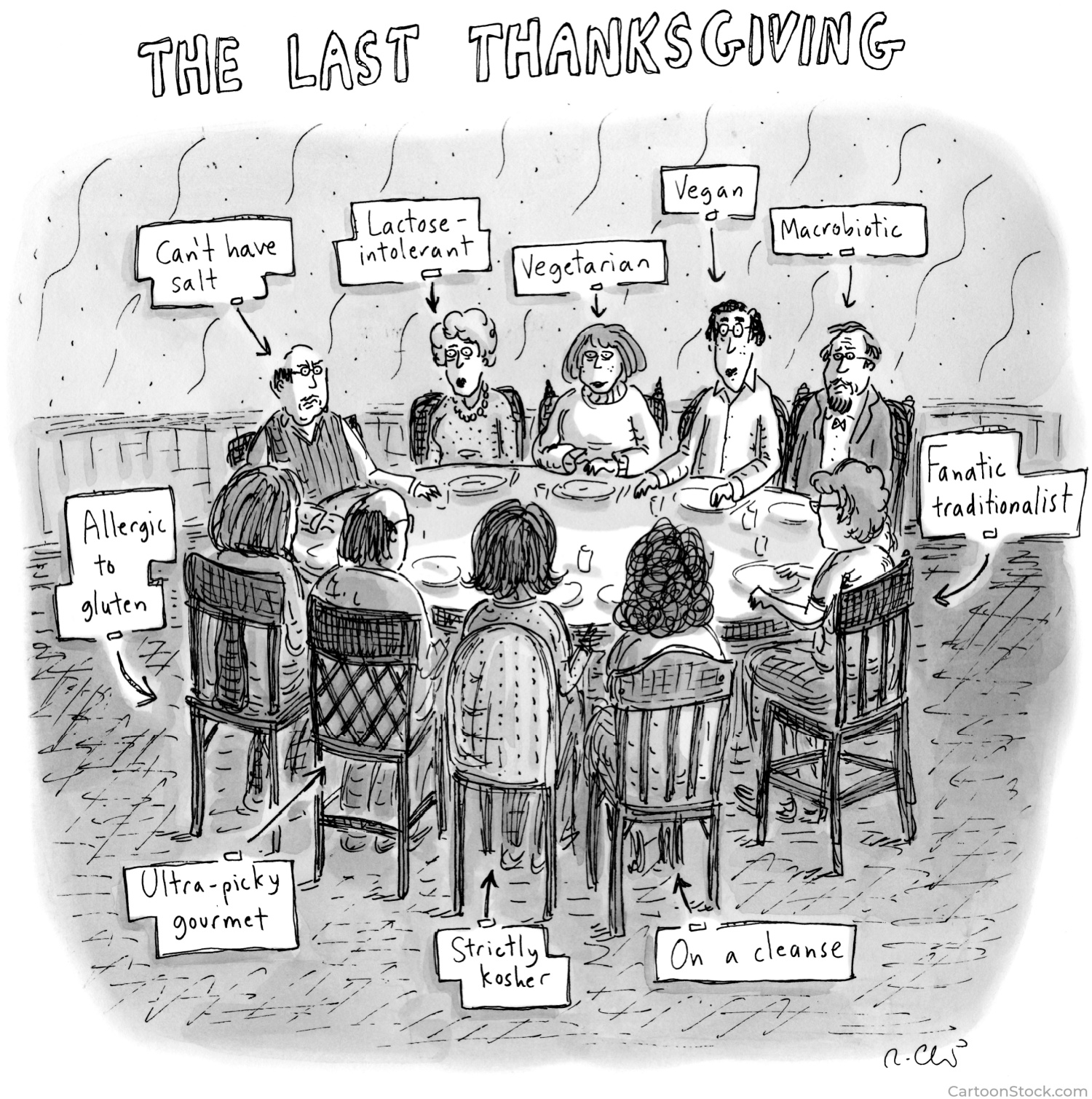When people throughout the world experienced the COVID-19 pandemic and its associated shutdowns, the well-known expression “a family that eats together, stays together” was flipped for many families. The family that stayed together, ate together was a common occurrence as people experienced various levels of stay-in-place mandates. Most individuals and families were no longer rushing from one activity to the next, grabbing a quick fast-food meal on the way, or even working long shifts outside the home. With less intense schedules, many families were sharing an increased number of meals at home together. Multiple studies conducted over the past twenty years, including several by leading family meals scholar Barbara Fiese, have found that families who eat meals together several times a week are positively impacted physically, emotionally, relationally, and mentally. In particular, a long list of benefits is attributed to children and teens: including better academic performance, higher self-esteem, a greater sense of resilience, lower risk of substance abuse, lower risk of depression, and lower rates of obesity (e.g., Armstrong-Carter & Telzer, 2020; Fiese et al., 2012). The positive influences of regular family dinners are diverse and significant. Did the previously known benefits of family meals apply to families living through the stress and negative aspects of the Covid-19 pandemic?
Drawing from a journal article recently published in Marriage & Family Review, the present article briefly highlights the reported influences of family dinners on family relationships during the early stages of the COVID-19 pandemic. Due to the extensive data demonstrating the positive influence of family dinners, the BYU-based research team hypothesized that “engaging in regular family dinners will protect against the harmful effects of the COVID-19 pandemic on family relationships.” Many of the 731 adult participants across the United States reported engaging in family meals during the pandemic and described considerably greater levels of emotional closeness. Three central or “core” themes were identified after analyzing the participants’ open-ended reports: (1) Covid-19 Influenced Family Meals, (2) Family Dinners were Valued Time Together, and (3) Family Dinner plus Prayer was a Sacred Time of Grace.
Theme 1: COVID Influenced Our Family Meals
Although the questions asked of participants never specifically mentioned family dinners, many responses described meals together as a significant outcome of the Covid-19 pandemic. One participant explained,
We enjoyed having dinner together every night. Normally, we would be rushing to make it to practices or getting home late from practice and/or games, so dinner was rushed, and/or we got to spend very little time together. Since COVID-19 [closures], we have had more quality time spen[t] together.
Another parent reported,
[After COVID hit], we regularly spent time together … cooking and having family dinners regularly. … This allowed us time to sit back and realize the busyness of our lives and appreciate the time we have together.
Others noted that it wasn’t just family dinners that changed, but also breakfast and lunch. One parent said, “We have not eaten out since March 13th [three-four months]. All meals have been made here at home. We already ate together at every dinner, but now we also share breakfast and lunch.”
The increased frequency of family meals together was seen by many as an opportunity to strengthen family relationships, enjoy each other’s company, and focus on quality time together. Below are a few excerpts reporting positive changes related to Covid-19:
“We [have] focused on building family relationships with sit-down dinners together.”
“[In some ways, COVID] has been very positive for our family time. We eat together and enjoy each other’s company. We are eating more healthy and cooking more.”
“[I think that] lots of meal preparation and cooking was good across the board. This led to lots of quality family time together, including meals together as a practice instead of an exception, as [it was] before [COVID].”
Theme 2: Family Dinner means “Together Time”
The Covid-19 pandemic reportedly reminded many families of the value and importance of time spent together. For many, enjoying family meals together was a chosen activity for “together time.” One participant said, “We just embraced the extra time together. … We cooked better meals, watched movies, and spent more time together.”
Multiple participants described how the pandemic restrictions enabled their family to focus on “together time” at home, including this parent:
During the pandemic, we tried to increase family meal time (both preparing and eating together). We usually try to participate in a family meal at home once a week, or we use going out to eat as a way to get family-together time. Because of the pandemic and restrictions, going out to eat was replaced with eating in and cooking together. The family togetherness … reduced the stress . … We inserted some together time with watching movies together while eating home-cooked meals we prepared together. A positive outcome has been displayed with our oldest son taking a lead role in planning and preparing a family meal. This has reduced parental stress, not only in the planning and prep duties but with a general better outlook on an older … child taking more responsibility towards the family (emphasis added).
One husband explained that shared meals with his wife were an important factor in reducing stress. He said,
[The COVID shutdown] really gave my wife and I much more time to spend together. We were home alone together and … we had time to eat [and] talk … together. … Just being together … reduced our stress.
Theme 3: Family Dinner Plus Prayer – A Sacred Time of Grace
In the predominantly religious (but diverse) sample of participants, a couple of open-ended questions were asked about changes to religious practices. Many of the participants reported that family prayers were an integral part of family meals. In response to a question related to family coping, some participants shared:
“[To cope], we … spend more time together [and] eat together and pray together.”
“We normalize praying together, eating … and having exercise [together], and this really helped us. … [A]lso praying helped us with our mental and emotional health we get to free our minds and share bothering things.”
“[To help us get through], we … eat dinner as a family and pray [together]. I think having dinner together strengthen[s] our relationship.”
Other responses that combined family meals with family prayer came from participants who described changes in family practices that were influenced by COVID:
“[Since COVID], we started praying together at meals more consistently. Each of us has our own thoughts about religion and religious practices, but this is a practice that has given us comfort and peace during these unpredictable times. I believe that we will continue to pray together more often as we move forward.”
“A lasting positive way [we have changed from COVID] is more regular prayer with each other. [We now pray] at meal times, in the morning, and also before bed. … [A]nd that will be a lasting positive effect.”
Others described the importance of focusing on both family meals and religious rituals during difficult times. One Jewish parent explained,
“[T]his year, [with COVID difficulties] we made a point of participating in a Passover Seder via Zoom with the extended family—and it felt right and important to do this at this questionable time of human existence.”
One Catholic parent shared that “grace before meals” was an important factor contributing to familial and religious unity during uncertain times. They said,
The lasting positive effects of the COVID-19 shutdown [are] that my children see that [we] continue to practice our religious practices such as hearing mass on Sundays as well as saying the rosary and Graces before meals. … The COVID-19 shutdown made our family closer since we are together more often. It has reinforced the practice of turning to God and to religion when there is fear and uncertainty, especially when there are things that we cannot solve by ourselves.
Conclusion
The COVID-19 pandemic provided profound challenges but also a potential opportunity for families to focus on shared family meals, quality time together, and associated religious practices. A few years before COVID emerged, John Gottman, renowned psychologist and marriage researcher, noted, “It is a sad fact that less than a third of U.S. families eat dinner together regularly, and more than half of those that do have the television on. This effectively ends conversation during dinner” (Gottman & Silver, 2015, p. 263). As demonstrated by this study’s participant responses, the power of family meals often lies in the relationships and communication that accompany those meals.
Many valuable lessons were learned as families focused on each other during the stay-in-place mandates that accompanied the pandemic. As we move forward, those remembered lessons—including the vital importance of shared family meals—can continue to enhance relational well-being and the quality of family relationships.
















